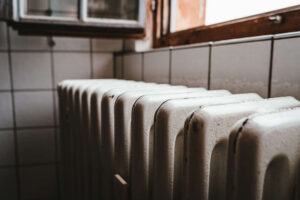To avoid rising energy costs and work toward a more sustainable life, many homeowners are trying new methods to maintain comfort levels while using less energy. Included in the Inflation Reduction Act, federal tax credits are available for upgrading to more efficient HVAC systems, such as air conditioners. These credits offer a big chunk of the installation costs, provided that homeowners select qualifying equipment and submit the appropriate form.
If you’re worried about a long, complicated process, we’re offering to help! AZ Air Conditioning and Heating hopes this guide will provide all the information necessary to take full advantage of HVAC tax credits this year. Here’s how to make it happen.
Understanding the HVAC Tax Credits
These valuable tax credits for boosting your home’s energy efficiency are just one small part of the recent Inflation Reduction Act. With the higher cost of energy making an impact, helping more homeowners upgrade their equipment is always beneficial. The key provision of these credits is to reduce the cost of installing high efficiency upgrades. Two of note are the Energy Efficiency Home Improvement Credit and the Residential Clean Energy Credit.
However, to earn any of the credits, you’ll need to fill out IRS Form 5695. Additionally, this form has to be submitted during the same tax year the upgrades were installed, not purchased.
Maximizing Savings with the Energy Efficiency Home Improvement Credit
Through 2032, the Energy Efficiency Home Improvement credit empowers homeowners by offsetting up to $3,200 every year for energy-efficient home upgrades. This equals 30% of the total project’s cost. Keep in mind that in order to receive the maximum amount, it involves making different investments. For example, you’ll save up to $2,000 for a new, high-efficiency heat pump. This can be combined with the remaining $1,200 in credits for other eligible upgrades made within the tax year.
While new heat pump installation projects are a great use of the program, high-efficiency furnaces, air conditioners, boilers, and other HVAC systems are still eligible for this tax credit. You should confirm that your choice’s energy efficiency rating is sufficient to qualify.
Exploring the Residential Clean Energy Credit
The Residential Clean Energy Credit offers 30% savings on a variety of residential clean energy efficiency projects. Eligibility is only extended to homeowners seeking to update existing or newly constructed homes. While the Home Improvement Credit focuses on utilities and HVAC systems, this credit is more about renewable energy sources like solar and wind energy.
Some provisions of the tax credit include requiring the installation project to be finished between 2022 and 2032. But at the same time, homeowners can use any excess credit to reduce taxes in future years. This is a great way to soften the entry into investing in clean energy.
Additional Qualifications for Energy Tax Credits
Because HVAC systems are one of the major reasons for high energy bills, these tax credits can guide you to the most energy-efficient options. But home energy efficiency can be improved in lots of other ways. Apart from the previously listed HVAC upgrades, {you could also choose|other eligible items include|you also have access to:
- Energy-saving heat pump water heating systems
- Electrical panel upgrades
- Upgraded electrical wiring
- Insulation, air sealing and ventilation enhancements
- Energy-efficient cooking appliances like stoves, cooktops, and ovens
- Heat pump clothes dryers
- Water boilers
Like the HVAC systems, you’ll need to verify that your chosen products meet the eligible energy efficiency ratings.
Three Tips for Making the Most of 2024 HVAC Tax Credits
While all the listed upgrades can improve your home’s energy efficiency, a little planning will ensure the best chance at more long-term benefits. Get the most from your HVAC tax credits with these reminders:
- Conduct a home energy audit to identify impactful upgrades. Rely on professional HVAC assessments for crucial advice.
- Improve your home’s thermal efficiency with better windows and doors.
- Explore potential rebates from utility companies for clean energy upgrades. Renewable sources like solar, wind, and geothermal contribute to community power grid sustainability.
- Don’t forget financing options from local service companies, which can help reduce costs even more.
AZ Air Conditioning and Heating Can Help You Secure HVAC Credits for 2024
Partner with local HVAC professionals like AZ Air Conditioning and Heating for help with home energy audits and new installation projects. Our helpful installers will deliver everything you need for a more energy-efficient home.
Whether you require installation, repair, or maintenance, our technicians will assist you with top-quality service at any time of the day or night. Take comfort in knowing your indoor air quality is the best it can be with MOE heating & cooling services Ontario's solution for heating, air conditioning, and ventilation that’s cooler than the rest.
Contact us to schedule a visit. Our qualified team of technicians, are always ready to help you and guide you for heating and cooling issues. Weather you want to replace an old furnace or install a brand new air conditioner, we are here to help you. Our main office is at Kitchener but we can service most of Ontario's cities
Source link




Add Comment